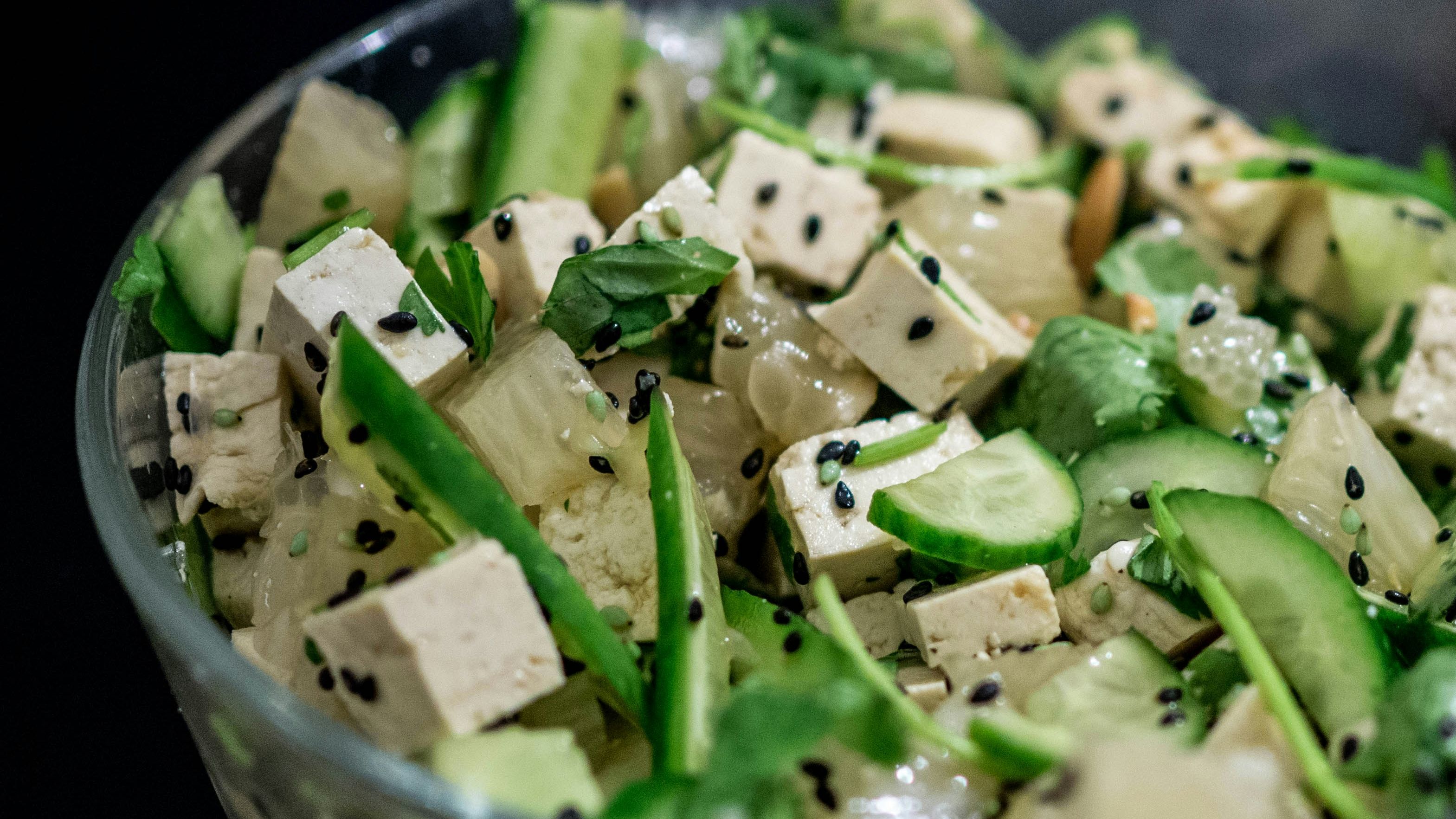Soy Consumption and Cancer
Mar 27, 2025
Soy is a controversial topic in cancer care.
This is because soy is a phytoestrogen, meaning that it can mimic or modulate estrogen in the body.
Estrogen is a growth factor, which is why certain drugs such as aromatase inhibitors are used in care to reduce circulating estrogen, and potentially halt cancer growth.
A phytoestrogen is a very weak estrogen that comes from plants. It can mimic estrogen by blocking (filling) an estrogen receptor site. This is useful because it causes a downregulation of estrogen production. (Tells the body to produce less.)
Other phytoestrogens such as flaxseed, can bind to estrogen in the GI system and eliminate it via waste. By eliminating it this way, the excess estrogen is not available for reuptake and circulation in the body.
Examples of phytoestrogens: flaxseed, organic soy, black cohosh, and red clover.
Advice about soy consumption is varied because of the following factors:
- Estrogen effects certain cancers differently
- Studies on soy are often conducted on Asian-only populations
- Studies may fail to detail the other factors influencing the participants (microbiome, consumption of fermented foods and sea vegetables)
- Studies sometimes do not detail the type of soy product they are testing (organic, non-organic, fermented, milk, processed soy isolates)
Consumption of fermented soy has been associated with benefits to cardiovascular, hormonal, and bone, and digestive health. It is also used in some hormone-dependent cancer care.
When assessing these benefits, it's very important to note that:
Many of the studies showing benefits from soy consumption were conducted on Asian populations, who have a very different microbiome than that of a Caucasian, due to inherited microbiome from the mother and a vastly different diet over their lifetime.
Equol is an isoflavone from soy, which has been praised for its health benefits. Equol is converted from daidzein, another isoflavone found in soy. Specific microbes in the intestines make this conversion possible.
However, only 40-60% of individuals of Asian descent are able to convert daidzein to equol. Even less of the Caucasian population in the U.S. is able to make this conversion: 25-35%. A contributing factor may be that those of Asian descent tend to eat more seaweed, which enhances the intestine’s conversion of isoflavones into equol.
Your ability to benefit from soy intake depends on:
- your genetics
- the diversity of your microbiome
- function of your digestive system
- cancer type and subtype*
- other hormonally driven conditions such as hypo- and hyperthyroidism
*Soy should be used with caution in ER+ postmenopausal cancers, and other hormone-dependent cancers.
Short and sweet:
If you eat soy...
- Always eat organic, non-GMO, fermented soy products such as tofu, miso, natto, tempeh, and edamame. Non-organic soy is one of the most heavily sprayed crops.
- Only eat it 1-3 times per week so it doesn't impact the function of your thyroid gland.
- Always eat it with some kind of seaweed.
The most effective diet and lifestyle recommendations for those with cancer are personalized. If you have a diagnosis, consider working with me 1:1.
References
- He FJ, Chen JQ. Consumption of soybean, soy foods, soy isoflavones and breast cancer incidence: Differences between Chinese women and women in Western countries and possible mechanisms. Food Science and Human Wellness. 2013;2(3):146-161. doi:10.1016/j.fshw.2013.08.002
- Belobrajdic DP, James-Martin G, Jones D, Tran CD. Soy and Gastrointestinal Health: A Review. Nutrients. 2023;15(8):1959. doi:10.3390/nu15081959
- Spagnuolo C, Russo GL, Orhan IE, et al. Genistein and Cancer: Current Status, Challenges, and Future Directions. Advances in Nutrition. 2015;6(4):408-419. doi:10.3945/an.114.008052
© 2025 Mistletoe Nutrition and Wellness LLC
Disclaimer: The information shared on this account is intended for inspirational and informational purposes only and is not a substitute for medical advice. Nothing on this account is intended to diagnose, treat, prevent, or cure any disease. Consult with your healthcare provider before making any dietary, lifestyle, or supplement changes and do not forego or delay seeking medical attention based on the information shared on this account. You acknowledge and agree that the results of any of our services, offerings, or products as described in a testimonial are not typical, are for illustrative purposes only, and cannot be guaranteed or assumed to be achievable by you. Please always consider your personal situation and do your own research.
Book a free Discovery Call to learn more.
Stay connected with news and updates!
Holistic health resources, nutrient-dense recipes, and myth-busting articles for folks with a cancer diagnosis or hoping to prevent disease.
I don't spam, and I will never sell your information, for any reason.
